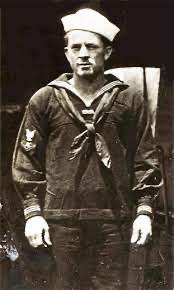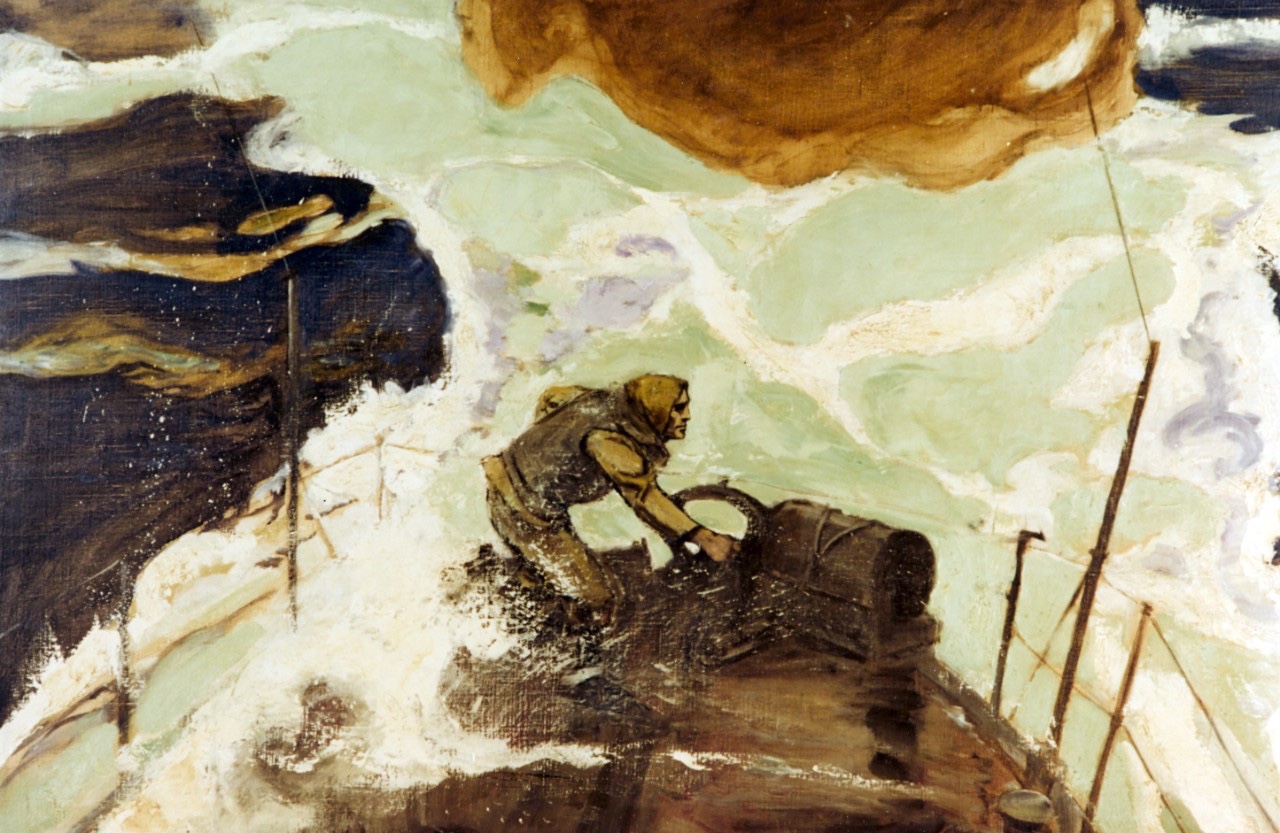Gunners Mate First Class GM1 Osmond Kelly Ingram of Pratt City, Alabama, was the first enlisted man to die in World War I. On 15 October 1917, the 30-year-old seaman was serving aboard the Navy destroyer USS Cassin DD-43, which was sunk by a German submarine U-61. For his bravery that day, Ingram would be awarded the Medal of Honor. He would also be the first enlisted man to have a ship named after him.

Osmond Ingram was born in Oneonta, Blount County, Alabama, on 7 August 1887, to Naomi [Bettie] and Robert Ingram. His father was a Confederate Army soldier and Methodist Episcopal priest. Before Robert’s death in 1897, the family relocated to Pratt City, Jefferson County, Alabama. After becoming 16 years old in 1903, Kelly, as he was known, decided to join the Navy. On 24 November 1903, he enlisted in the United States Navy with his mother’s permission. He left the Navy after five years to join the Pratt City Fire Department. He spent five years as a firefighter before reenlisting in the Navy. As a Gunner’s Mate in the Gunnery Department, he was assigned to the USS Cassin. When the United States entered the war on 6 April 1917, Ingram was still aboard the USS Cassin. His ship was part of a Navy armada going to France and England to safeguard American commercial ships transporting merchandise.
The USS Cassin was patrolling off the coast of Ireland on 15 October 1917 when she came in contact with the German submarine U-61, which fired a torpedo. Ingram was the first person on board the destroyer to notice the torpedo heading straight for the ship’s stern. When Ingram realized the depth charges were kept in the stern, he dashed to the back of the ship and began releasing them to lessen the blast’s impact. Before the torpedo hit, he had detonated many of the depth charges. Ingram was thrown overboard from the explosion, and Cassin’s rudder was severely damaged. The warship was able to return to port for repairs. Ingram’s death was the lone fatality. His remains were never found.

In 1920, Secretary of the Navy Josephus Daniels wrote to his mother, notifying her of the decision to award Ingram the Medal of Honor posthumously:
“For extraordinary heroism in the presence of the enemy on the occasion of the torpedoing of the Cassin, on 15 October 1917. While the Cassin was searching for the submarine, Ingram sighted the torpedo coming and, realizing that it might strike the ship aft in the vicinity of the depth charges, ran aft with the intention of releasing the depth charges before the torpedo could reach the Cassin. The torpedo struck the ship before he could accomplish his purpose, and Ingram was killed by the explosion. The depth charges exploded immediately afterward. His life was sacrificed in an attempt to save the ship and his shipmates, as the damage to the ship would have been much less if he had been able to release the depth charges.”
After Congress established the Military and Naval Insurance Act in 1918, his mother became the first beneficiary of money for dependents of soldiers and sailors. The USS Osmond Ingram DD-255, a destroyer, was commissioned in June 1919 in his honor. It was the first navy ship to be named after an Enlisted sailor. The ship was one of the ships anchored at Pearl Harbor on 7 December, 1941.


It’s striking to me how different the criteria and the standards are for awarding the MOH then and now. This heroic act – still posthumous – would likely have never even been brought under today’s standards. I don’t know if that bodes well or ill.
Gave his life in an attempt to save his ship and shipmates lives, what more could have been asked of him?
RIP Gunners Mate First Class Osmond K. Ingram. To paraphrase Gen. G.S. Patton – ‘Thank God such men lived’. And Mr. Markcyst, I respectfully submit and think you’ll agree that these more recent MoH recipients easily meet that criteria – https://www.businessinsider.com/how-seven-navy-seals-earned-the-medal-of-honor-2021-12
well in the army you can be a brand new e5, with a MAJ and an e8 for a boss, deploy for the first time in a unit that never saw combat during the deployment, and get a bronze star working a desk. i think it takes away from what we are trying to do. many have fell running the line.
I saw that many times for certain enlisted and officers during my deployments as an staff officer. I agree, it takes away a lot.